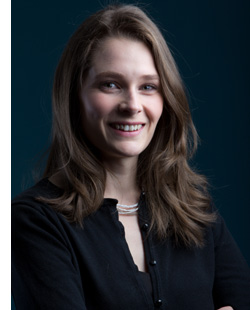
I like being different. In fact, one of the reasons I decided to pursue a career in physics is that there are very few scientists in South Africa, and even fewer female scientists. My thinking was that fewer people in the game meant less competition and more opportunities. Each year, there are only about 23 Ph.D. graduates produced per million South African citizens (and this encompasses all academic disciplines, not just the sciences.) Here, I provide a few tips for getting your Ph.D. in a country where high-level degrees are not the norm.
Find a dynamic mentor.
At the end of my undergraduate studies, I chose the topic of my research project based not only on my interests, but also on the potential supervisors with whom it would put me in contact. Having a helpful ally is important for any graduate student, but even more so for those in a country that has fewer resources available for Ph.D. students. I had a checklist for the mentor I wanted. He or she needed to be:
• Available and approachable
• Able to provide me with the opportunity to attend and present at conferences (even if they were only local ones)
• Good at sourcing funding, and
• Well-connected in the South African science community.
While on vacation from university, I got a short-term position at the CSIR’s National Laser Centre that enabled me to test the waters for future opportunities. This was the ideal interview process: I got to see if I enjoyed the environment and the research, and my future Ph.D. supervisor was able to assess if I was a good fit for the group.
During this time, I saw that my mentor was ambitious and dynamic. He had an impeccable track record at securing funding and many local and international contacts. I could tell that, if I wanted to distinguish myself in my field, he could teach me how to do exactly that.
Be proactive.
Where networks don’t exist, you must create them. Our student body formed local OSA and SPIE student chapters, which opened up many opportunities for me and other students, including travel grants, funds to bring in world-renowned lecturers, the possibility of hosting our own student conference (IONS) and discounts on publications. The OSA Recent Graduates program will also provide you with volunteer opportunities, so that you can gain experience and showcase your potential to science and business leaders from around the world.
Return the favor.
Admittedly, I pursued this field in part because I knew I would be a minority. But I hope this will not always be the case. I would like to encourage young people in South Africa and other developing nations to take advantage of the opportunities in the sciences and use their influence to help others along the same path. I intend to give back to the community by becoming as effective a teacher as my mentors have been for me.
Angela Dudley (ADudley@csir.co.za) conducted her Ph.D. research at the CSIR National Laser Centre based in Pretoria, South Africa. She received her Ph.D. in June 2012 from the University of KwaZulu-Natal and subsequently commenced her current position of Postdoctoral Fellow within the Mathematical Optics group at the CSIR National Laser Centre.
